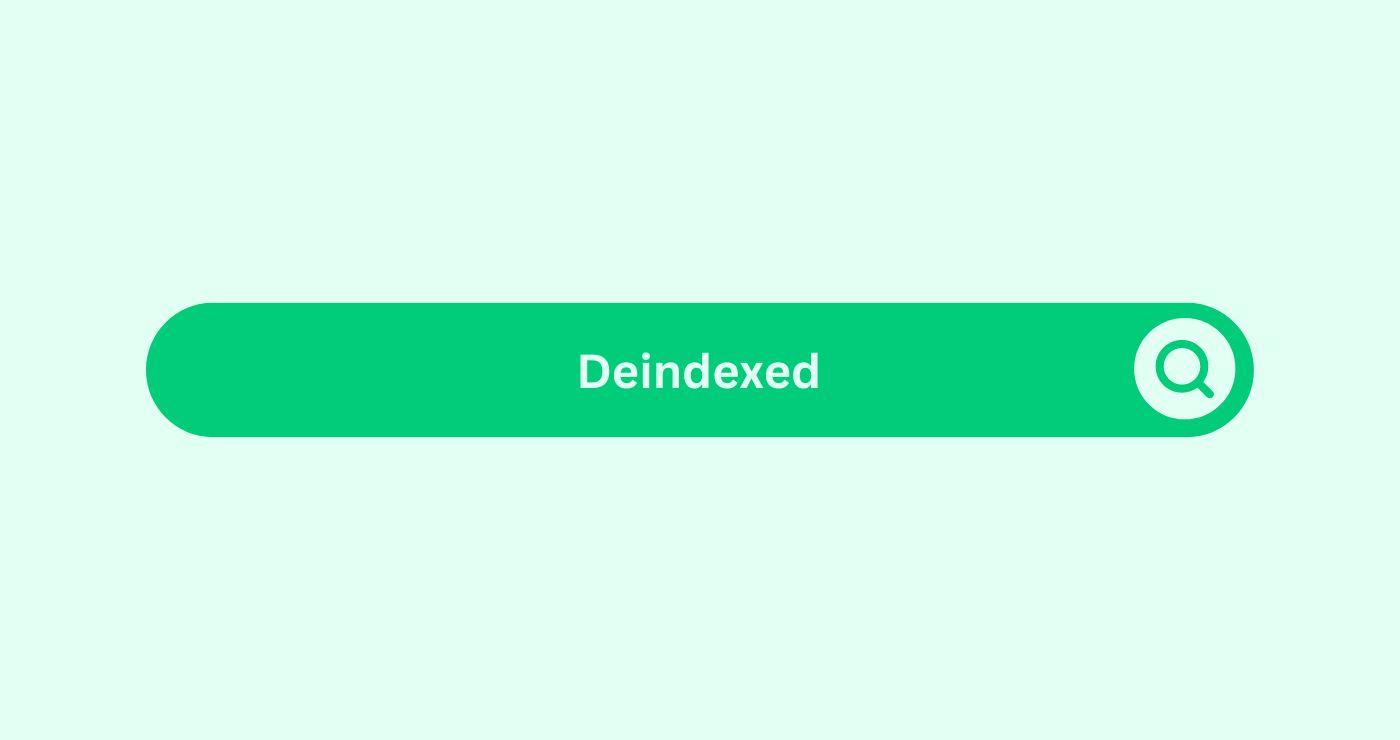Definition
Deindexing in the context of SEO refers to the removal of a webpage or an entire website from a search engine’s index. When a page is deindexed, it means that it no longer appears in search engine results pages (SERPs). This can happen for various reasons, such as violations of search engine guidelines, technical issues, or intentional actions by the website owner.
A deindexed page loses its ability to attract organic searchWhat is Organic Search? Organic search refers to the natural... More<search trafficDefinition Search traffic, in the context of SEO, refers to ... More, which can significantly impact the visibility and performance of a website. To avoid being deindexed, it’s essential to adhere to best SEO practices, regularly monitor site health, and ensure compliance with search engine policies.
How You Can Use Deindexed
To illustrate the concept of being deindexed, consider the following example:
You operate an e-commerce website that has experienced a sudden drop in organic trafficDefinition In the context of SEO (Search Engine Optimisation... More. Upon investigation, you discover that several of your product pages have been deindexed by Google. Here’s how you can address and resolve this issue:
- Identify the Cause: Use Google Search ConsoleDefinition Google Search Console is a free web service from ... More to check for any manual actions or penalties that might have been applied. Also, look for technical issues such as broken links, serverDefinition A Server in the SEO space refers to a computer sy... More errors, or problematic redirectsDefinition Redirects in the SEO space refer to HTTP status c... More.
- Fix the Issues: If there are manual penalties, follow the guidelines provided by Google to rectify the issues. This could involve removing low-quality content, fixing security vulnerabilities, or addressing spammy practices.
- Submit for Reconsideration: Once the issues are fixed, submit a reconsideration request to Google through Search Console, explaining the steps you have taken to comply with their guidelines.
- Regular Monitoring: Continuously monitor your site’s performance and health using tools like Google Search ConsoleDefinition Google Search Console is a free web service from ... More and third-party SEO tools to prevent future deindexing.
By addressing the underlying issues and ensuring compliance with search engine guidelines, you can work towards getting your pages deindexed and restoring your organic trafficDefinition In the context of SEO (Search Engine Optimisation... More.
Key Takeaways
- Loss of Visibility: Deindexed pages do not appear in search engine results, leading to a significant drop in organic trafficDefinition In the context of SEO (Search Engine Optimisation... More.
- Causes Vary: Pages can be deindexed due to guideline violations, technical errors, or intentional removal.
- Identification key. Use tools like Google Search ConsoleDefinition Google Search Console is a free web service from ... More to identify and understand why a page was deindexed.
- Resolution Process: Address the issues and submit a reconsideration request to get the pages deindexed.
- Preventive Measures: Regular site monitoring and adherence to SEO best practices can help prevent deindexing.
FAQs
What does it mean to be deindexed?
Being deindexed means a webpage or website has been removed from a search engine’s index, making it invisible in search results.
Why would a page be deindexed?
Pages can be deindexed due to violations of search engine guidelines, technical issues, or intentional actions by the website owner.
How can I check if my page is deindexed?
Use tools like Google Search ConsoleDefinition Google Search Console is a free web service from ... More to see if any pages have been deindexed and to identify possible reasons.
What should I do if my page is deindexed?
Identify the cause of deindexing, fix any issues, and submit a reconsideration request to the search engine.
How long does it take to get reindexed?
The time to get reindexed can vary, but it generally depends on how quickly the issues are resolved and how fast the search engine processes your reconsideration request.
Can intentional deindexing be reversed?
Yes, if you intentionally deindexed a page, you can reverse it by updating your robots.txtDefinition Robots.txt is a text file located in the root dir... More file or removing noindex tags.
What are common reasons for deindexing?
Common reasons include duplicate contentDefinition Duplicate content in the SEO space refers to iden... More, spammy practices, serverDefinition A Server in the SEO space refers to a computer sy... More errors, security issues, and violations of search engine guidelines.
How does deindexing affect SEO?
Deindexing removes a page from search results, leading to a loss of organic trafficDefinition In the context of SEO (Search Engine Optimisation... More and potentially impacting overall site performance.
Can deindexed pages still be accessed directly?
Yes, deindexed pages can still be accessed directly via their URL but will not appear in search engine results.
What preventive measures can I take to avoid deindexing?
Regularly monitor your site’s health, adhere to SEO best practices, avoid guideline violations, and use tools like Google Search ConsoleDefinition Google Search Console is a free web service from ... More for ongoing compliance.




